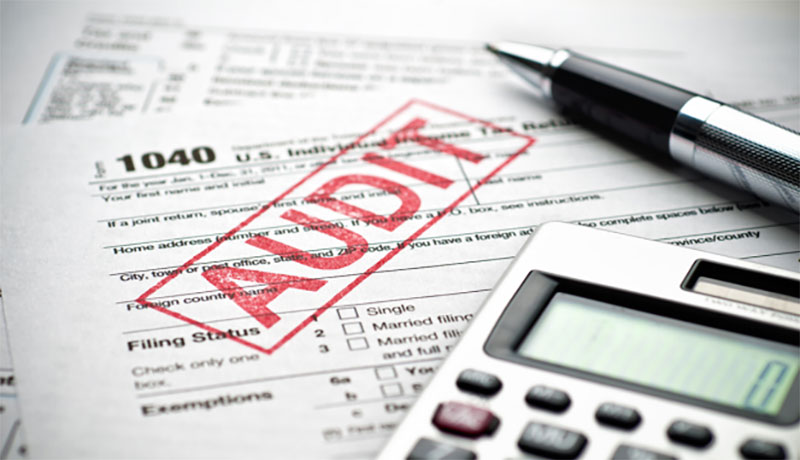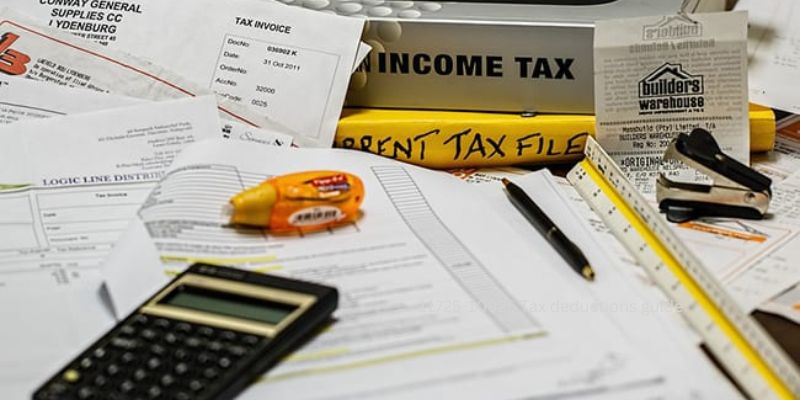Are you facing an IRS audit? It can be a stressful and confusing experience, but don't worry – there are steps you can take to make sure you come out on the other side successfully.
This blog post'll equip you with all the information and resources necessary to properly handle an IRS audit. We'll cover how to prepare for your audit appointment, what to expect during the process, and tips and tricks on how to come out of it unscathed.
Understand why the IRS may audit you and what information they will need
The Internal Revenue Service (IRS) may audit you for various reasons. Generally, the IRS audits taxpayers who do not provide accurate information or do not report their income accurately. An audit can also be conducted if your deductions are unusually high compared to other taxpayers in similar financial circumstances.
When preparing for an IRS audit, you must understand what information the agency is looking for and how it will use. The IRS will require relevant documents such as previous years' tax returns and financial statements. They'll also want evidence supporting items claimed on your return, including receipts, invoices, canceled checks, and bank statements. You should also be prepared to answer questions about any unusual or suspicious activity reported on your tax return.
IRS audits, at a glance
IRS audits are official reviews of your tax return and financial information. The purpose of the audit is to ensure that you are accurately reporting income and deductions, paying the right amount of taxes, and meeting all other filing requirements. An IRS auditor may come to your home or place of business, or they can review your documents remotely. During an audit, you'll be asked to provide supporting documentation for any items on your tax return, including evidence of expenses, receipts for business activities, canceled checks, and bank statements.
In addition to verifying the accuracy of the information on your return, the IRS will also check whether you have paid all necessary taxes owed. Additional taxes or fines may be imposed if the audit reveals errors or inconsistencies in reported income or deductions.
An audit can last anywhere from several days to several months, depending on the case's complexity and how quickly you can provide documents and answer questions. Knowing your rights during an IRS audit, including the right to legal representation, is important. An experienced tax attorney can help protect your interests throughout the process, and any penalties or fees incurred are minimal.
What you need to know about IRS audits

IRS audits are an important part of the taxation process and can have serious consequences if you do not comply with the requirements. Understanding what information is needed, how to prepare for an audit, and your rights during the process will help ensure a successful outcome. Here's what you need to know about IRS audits:
First, be prepared to provide supporting documents for any items on your tax return. This includes receipts, invoices, canceled checks, bank statements, and other documentation supporting deductions or income reported on your return. An IRS auditor may visit your home or business during the audit process or conduct a remote review. Be sure to answer any questions honestly and provide all relevant information requested by the IRS.
Next, understand your rights during an audit. You have the right to legal representation and may be able to reduce any taxes or fines imposed by providing evidence of deductions or income. Additional taxes may be assessed if errors are found in reported income or deductions; however, having a tax attorney can help minimize potential penalties.
How to address an IRS audit
Understanding the scope of the tax audit
Before beginning the audit process, it is important to understand the scope of the audit. This includes any questions you may be asked and what documents or records you must provide. Additionally, ask for a list of items that need to be addressed during the audit – this will help ensure that all necessary information has been provided.
Gather necessary documents
Gathering necessary documents before your tax audit appointment can save time and effort. Have on hand relevant paperwork such as previous years' tax returns and financial statements, evidence supporting items claimed on your return (e.g., receipts, invoices, canceled checks, bank statements), and other materials that may be required to support your claims. Knowing which documents you need beforehand will help ensure the process runs smoothly.
Prepare for your audit appointment
Before your tax audit appointment, ensure you are prepared by familiarizing yourself with the information requested by the IRS and having all relevant documents ready. Additionally, it is important to understand your rights during an IRS audit – such as the right to legal representation – and how any penalties or fees imposed may be minimized. Following these steps will increase your chances of a successful outcome.
Remain organized and calm during the audit process

Staying organized and remaining calm during the audit process is essential for a successful outcome. Have all relevant documents on hand to answer questions quickly and efficiently.
Additionally, take detailed notes of everything discussed during the meeting – this will help when preparing your response or appealing any additional taxes or fines imposed. Finally, remember that an IRS auditor is simply doing their job; if treated with respect, they may go easier on any penalties assessed.
If you disagree with the results, appeal to the appropriate venue
If you disagree with the results of an IRS audit, you may appeal the decision by filing a protest with the Office of Appeals. This is a formal process and should not be taken lightly – it's best to consult a tax attorney before proceeding. After submitting your protest, the IRS will review it and contact you if they decide to change their decision or require additional information to proceed with an Appeal.
FAQs
Q: What should I do if I'm facing an IRS audit?
A: The first step when facing an IRS audit is to look into your financial records and ensure you have all the necessary documents. This includes receipts, bank statements, invoices, etc., that can prove your income and deductions claimed on your tax return are accurate. Once you've gathered this information, contacting a qualified tax professional for guidance is important. They'll be able to assess your situation and provide advice on how best to prepare for the audit process.
Q: What should I expect during an IRS audit?
A: Depending on the type of audit (e.g., in-person or correspondence), there will be different procedures. Generally, the IRS will review some of your financial records and ask questions about them to verify the accuracy of your tax return. They may also request further documents from you if necessary. It's important to remain cooperative and provide all relevant information requested, as this will help ensure a smoother process and a better outcome for you.
Q: How can I best prepare for an IRS audit?
A: The best way to prepare for an IRS audit is to be organized and proactive. This includes having all required documents available in advance, staying up-to-date on changes in tax laws that could affect your filing, and consulting with a qualified legal or accounting professional who can advise your situation. Additionally, it’s important to remain calm and collected during the audit, as any signs of nervousness or hostility can be seen as a sign of guilt by the IRS.
Conclusion
An IRS audit can be a stressful experience, but understanding the process and your rights will help ensure a successful outcome. Gathering all necessary documents in advance, staying organized during the audit, and consulting with an attorney or accountant can go a long way toward minimizing any potential tax issues. With these tips in mind, you'll be better prepared to handle any IRS audit that comes your way.




